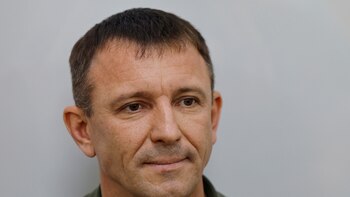
(ATR) Germany is expected to top the medals table at the PyeongChang Winter Games next month, rebounding from a disappointing Sochi 2014.
That’s according to calculations made by Gracenote Sports, which on Wednesday released its monthly Virtual Medal Table with less than 30 days to go before the start of the Games. Norway, Canada, the United States and France are expected to round out the top five in terms of total medals won.
Germany’s expected climb to the top of the medals table follows a disappointing sixth place finish in the total number of medals at Sochi.
For now, Russia is being left out of the table entirely because it is unknown which Russian athletes will be in PyeongChang competing under the Olympic Athletes from Russia banner.
"All we can do is say this is what it is now - with people we know are going to be there - and as far as Russia goes we have to leave it out completely," Simon Gleave, head of analysis at Gracenote Sports, tells Around the Rings. "We have them on 19 medals but those medals would go to these other countries if these people don’t come."
The current forecast of 19 medals (4 gold, 6 silver and 9 bronze) for the Olympic Athletes from Russia team would be enough to place them in 6th place. With OAR not included in this month’s table, Germany leads the countries who would profit from the absence of Russians. Germany’s projected medal total would increase by five, followed by Norway (+4), Canada (+2), France (+2), Japan (+2) and Finland, Great Britain, Italy and the Netherlands (all +1).
Gleave says Gracenote’s final projection, which will be released just before the start of the Games, will include all the Russian athletes who are cleared to compete for the OAR team.
The host country South Korea is not expected to better its previous best showing of 14 medals at Vancouver in 2010. Gleave says the home field advantage does not factor into the total number of medals won but rather gives a boost to the types of medals won.
"We’re only projecting 10 medals at the moment, seven of those being gold," Gleave says. But he adds that there is the chance for more.
"We have a lot of Korean short trackers sitting just outside the medals as well so it’s quite possible they might spring in but it will be clearer once we do our final projection."
Historically, short track has been South Korea's best event with 42 of the country's 53 overall Winter Games medals won in the sport. Prior to the introduction of short track at Albertville 1992 Winter Games, South Korea had never won a medal. Since then, the country has won 44% of golds in the sport.
Gracenote’s Virtual Medal Table is based on results in world class events (Olympic Games, World Championships, World Cups or equivalent) from the Sochi Olympics up until now. The results are weighted for the importance of the competition (World Championship results get more credit in the algorithm than World Cup results) and the time since the competition took place (a result from last week gets more credit than a result from three years ago, for example).
If a sport has very few data points or is dominated by a single continent, continental championships are also included in the calculation. Gracenote’s algorithm produces a rank for each event and gold, silver and bronze medals are allocated to the top three in that rank. All of that information then feeds into the Virtual Medal Table for PyeongChang 2018.
Click here for more on the latest Virtual Medal Table.
Written by Gerard Farek
For general comments or questions,click here.
25 Years at #1: Your best source of news about the Olympics is AroundTheRings.com, for subscribers only.
Últimas Noticias
Utah’s Olympic venues an integral part of the equation as Salt Lake City seeks a Winter Games encore
Utah Olympic Legacy Foundation chief of sport development Luke Bodensteiner says there is a “real urgency to make this happen in 2030”. He discusses the mission of the non-profit organization, the legacy from the 2002 Winter Games and future ambitions.

IOC president tells Olympic Movement “we will again have safe and secure Olympic Games” in Beijing
Thomas Bach, in an open letter on Friday, also thanked stakeholders for their “unprecedented” efforts to make Tokyo 2020 a success despite the pandemic.

Boxing’s place in the Olympics remains in peril as IOC still unhappy with the state of AIBA’s reform efforts
The IOC says issues concerning governance, finance, and refereeing and judging must be sorted out to its satisfaction. AIBA says it’s confident that will happen and the federation will be reinstated.

IOC president details Olympic community efforts to get Afghans out of danger after Taliban return to power
Thomas Bach says the Afghanistan NOC remains under IOC recognition, noting that the current leadership was democratically elected in 2019. But he says the IOC will be monitoring what happens in the future. The story had been revealed on August 31 in an article by Miguel Hernandez in Around the Rings

North Korea suspended by IOC for failing to participate in Tokyo though its athletes could still take part in Beijing 2022
Playbooks for Beijing 2022 will ”most likely” be released in October, according to IOC President Thomas Bach.




